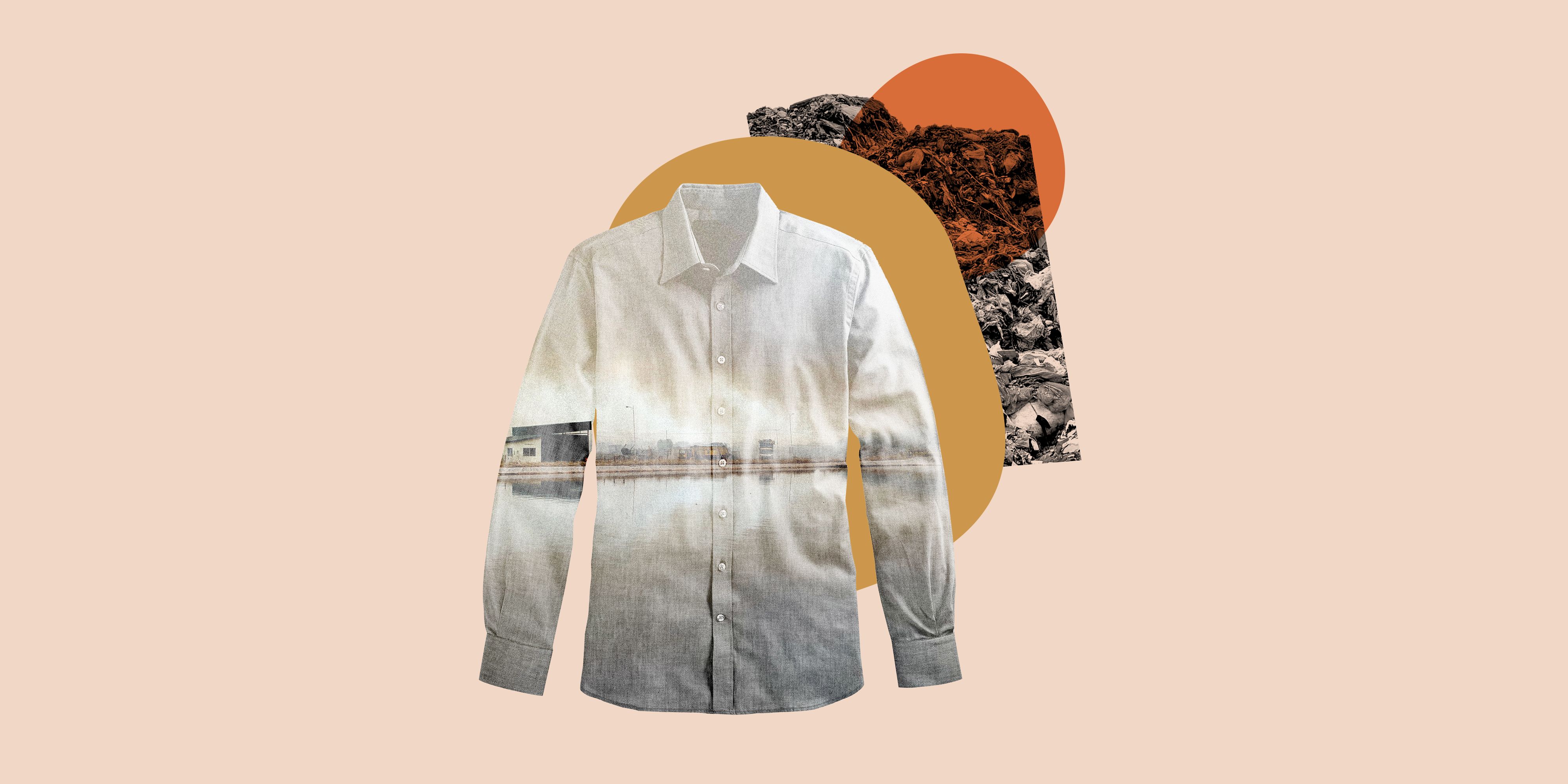Cape Town Sustainable Fashion Designers Leading the Eco-friendly Activity
Cape Town Sustainable Fashion Designers Leading the Eco-friendly Activity
Blog Article
Remain Ahead of the Curve by Discovering Ingenious Style Fads
In an industry as dynamic as fashion, staying in advance includes even more than simply complying with existing patterns-- it requires an exploration of development. Smart textiles, as an example, are transforming garments into functional work of arts, while 3D printing is changing design processes with its personalized, waste-reducing abilities. As sustainability comes to be a cornerstone, advancements like environment-friendly products and circular fashion practices are improving ecological responsibility - Cape Town Sustainable Fashion. Furthermore, the convergence of innovation and style declares a new age of consumer engagement. How, after that, can these arising trends redefine the future of fashion, and what implications do they hold for brand names seeking to thrive in this progressing landscape?

Embracing Smart Textiles
In recent years, the apparel industry has actually witnessed a transformative change with the integration of wise textiles, an innovative development that blends innovation with textile. This development stands for not just a blend of aesthetic appeals and performance however additionally a considerable leap towards sustainability and customization in vogue. Smart textiles, additionally understood as e-textiles, installed sophisticated electronic devices such as sensing units and conductive strings within the material, making it possible for garments to connect with the setting or the user.
These textiles are designed to monitor physical criteria, such as heart rate or body temperature level, offering real-time wellness analytics. Beyond wellness applications, clever textiles are also being used for flexible clothes, which can change color or pattern in feedback to environmental stimuli, therefore using a dynamic style experience.
In addition, the advancement of energy-harvesting textiles that create power from movement or sunshine is leading the way for self-dependent wearable technology. This advancement is appealing to eco conscious consumers and designers aiming to decrease the ecological footprint of style. As r & d in this area breakthrough, clever fabrics are anticipated to come to be progressively widespread, reshaping the landscape of modern-day style with their multifunctional capabilities.
The Surge of 3D Printing
Revolutionizing the production landscape, 3D printing has actually become a game-changer in the garment industry. This sophisticated technology has actually allowed developers to push the borders of imagination, generating complex and personalized garments that were formerly unimaginable. By leveraging electronic design and additive production, 3D printing assists in the production of complicated geometries and patterns, permitting designers to trying out new textures and frameworks.
A remarkable benefit of 3D printing in style is its capability to generate on-demand, lessening waste and decreasing stock needs. This effectiveness not only maximizes production processes yet also permits fast prototyping, allowing developers to bring their visions to life in a much shorter duration. In addition, 3D printing sustains modification somewhat unparalleled by traditional approaches, providing special styles and customized fits tailored to specific consumer preferences.
The surge of 3D printing has also equalized fashion, making it easily accessible to arising developers who can currently fabricate high-quality pieces without significant financial investment in traditional manufacturing infrastructure. As modern technology remains to advancement, the fashion business is poised to harness the full possibility of 3D printing, discovering brand-new materials and strategies that will unquestionably redefine exactly how fashion is developed and created.
Lasting Style Advancements
As the apparel industry comes to grips with the pushing demand for ecological responsibility, lasting style advancements have actually emerged at the leading edge of transformative change. The expanding awareness of eco-friendly effect has sustained a shift in the direction of even more eco-conscious practices and products. Brand names and developers are currently focusing on sustainability, integrating approaches that decrease waste and decrease carbon footprints.
One significant growth is the rise of circular style, which highlights recycling and upcycling to prolong the lifecycle of garments. This method not only reduces waste yet also motivates customers to adopt a more conscious method to garments usage.
Another breakthrough depends on the adoption of cutting-edge dyeing strategies that utilize waterless processes or natural dyes, thus lowering the vast amounts of water and chemicals generally used in textile dyeing. Moreover, innovations in biotechnology have brought about the production of lab-grown natural leather and materials, using cruelty-free and eco-friendly alternatives to traditional products. Through these pioneering efforts, the fashion business is making significant strides in the direction of a more sustainable future.

Tech-Integrated Garments
Tech-integrated garments stands for a cutting-edge blend of fashion and modern technology, reshaping exactly how people engage with their garments. This ingenious domain is noted by the incorporation of smart fabrics and embedded electronic parts, boosting both performance and visual charm. From fitness trackers installed in sports apparel to warmed coats managed through mobile phone apps, tech-integrated apparel supplies customers extraordinary comfort and versatility.
Pioneering brand names are driving this fad, concentrating on producing garments that reply to environmental stimuli or user commands. For example, some garments can transform shade or pattern in response to temperature level changes, while others integrate biometric sensors to keep an eye on health metrics like heart price or stress levels. The seamless integration of modern technology into textiles likewise prolongs to ecological sustainability, with efforts to establish self-cleaning textiles or garments that adapt to weather, hence decreasing the demand for several layers.
In addition, the development of wearable technology is not just limited to clothes however includes devices like watches and eyewear, further widening the scope of tech-integrated style. As the market continues to innovate, the possibility for modification and personalization in clothing expands, supplying customers one-of-a-kind, tech-enhanced style experiences that deal with their individual needs and choices.
Future of Virtual Style
In recent times, the future of online style has emerged as a transformative force within the sector, leveraging improvements in electronic innovation to redefine just how style is developed, experienced, and eaten. By incorporating augmented fact (AR), digital truth (VIRTUAL REALITY), and 3D design devices, designers can currently browse around this site craft interactive and immersive experiences that transcend typical style limits. Online style enables the production of garments that exist only in digital environments, providing unlimited possibilities for development without the restrictions of physical manufacturing.
This digital shift not only provides chances for creative expression however also addresses sustainability issues intrinsic in traditional fashion practices. Cape Town Sustainable Fashion. By eliminating the demand for physical sources, online style reduces waste and decreases carbon footprints. In addition, the rise of online style straightens with the increasing customer need for customized and one-of-a-kind experiences, as virtual garments can be personalized and tailored to private preferences easily

Conclusion
The fashion business's future lies in the integration of sustainable methods and ingenious modern technologies - Cape Town Sustainable Fashion. Smart textiles and tech-integrated garments are enhancing capability, while 3D printing offers chances for modification and waste reduction. Lasting fashion, with round approaches and environment-friendly products, demonstrates a commitment to environmental stewardship. Furthermore, digital style is poised to redefine consumer communications. Adjusting to these fads is essential for brand names seeking to continue to be affordable and pertinent in this swiftly evolving landscape.
In recent years, the style industry has seen a transformative shift with the combination of clever fabrics, an innovative technology that blends modern technology with textile.As the style market grapples with the pushing need for environmental duty, lasting style innovations have arised at the leading edge of transformative change.In current years, the future of virtual fashion has actually arised as a transformative pressure within the sector, leveraging improvements in digital modern technology to redefine exactly how fashion is useful source developed, experienced, and taken in. The increase of online fashion lines up with the boosting consumer need for unique and tailored experiences, as online garments can be tailored and tailored to private preferences with simplicity.
The style sector's future lies in the integration of sustainable practices and cutting-edge technologies.
Report this page